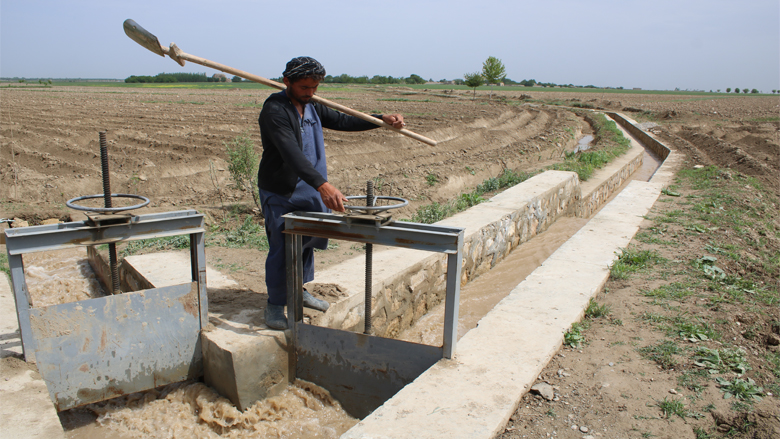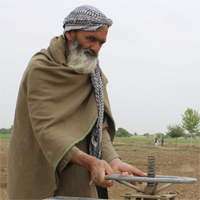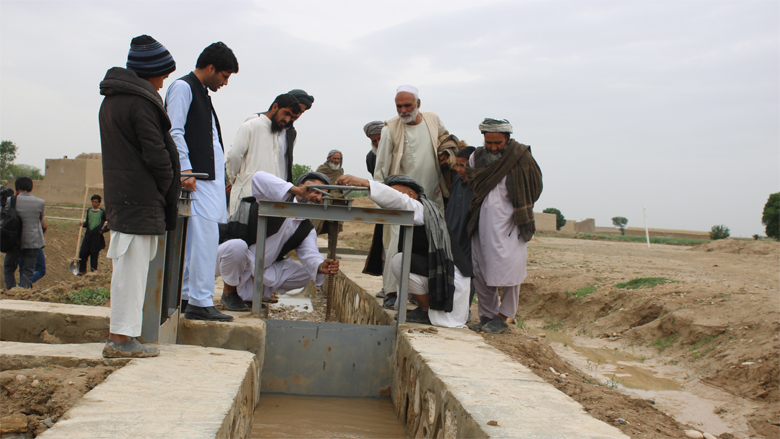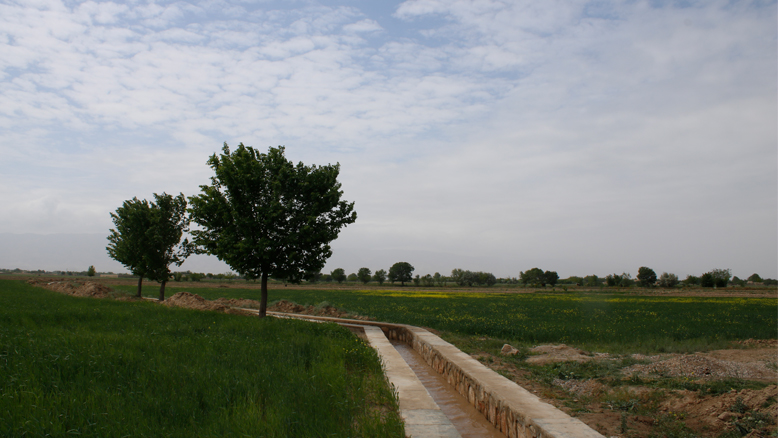Balkh District, Balkh Province – Since early morning, 22-year-old Shirdad and his elder brother have been working tirelessly on their patch of melons, one of the main crops they sell to the market. It is a cool fresh morning in Asia Qonaq village in Balkh district, and most of the residents are working on their farmland.
Shirdad is hopeful that his family’s land will yield more this year, having suffered from poor earnings in the past. He has reason to be positive since the On-Farm Water Management Project (OFWMP) rehabilitated and improved a section of the main irrigation canal in his village, the backbone of the Asia Qonaq irrigation scheme.
Until recently, bringing irrigated water to his land took two hours, which meant he had trouble irrigating even half of his 12 jeribs (2.3 hectares) of land. “I had an hour of irrigation water share and 50 percent of the water would be wasted in the canal,” explains Shirdad. Faced with water shortage, Shirdad says that his output was low and the quality poor. “The quality of the melons was poor and we sold them at a low price to the market. Now, the amount of irrigation water is good and we hope to earn more.”
Asia Qonaq is a village of 250 households, where over 80 percent of the families earn their livelihood by working in the fields and keeping livestock. The villagers are already seeing an improvement in their farming since the rehabilitation in 2017. Abdul Qayum, 50, a village resident and farmer says, “The project made positive changes and improved our irrigation water system. Now its condition is much better than in the past.”




